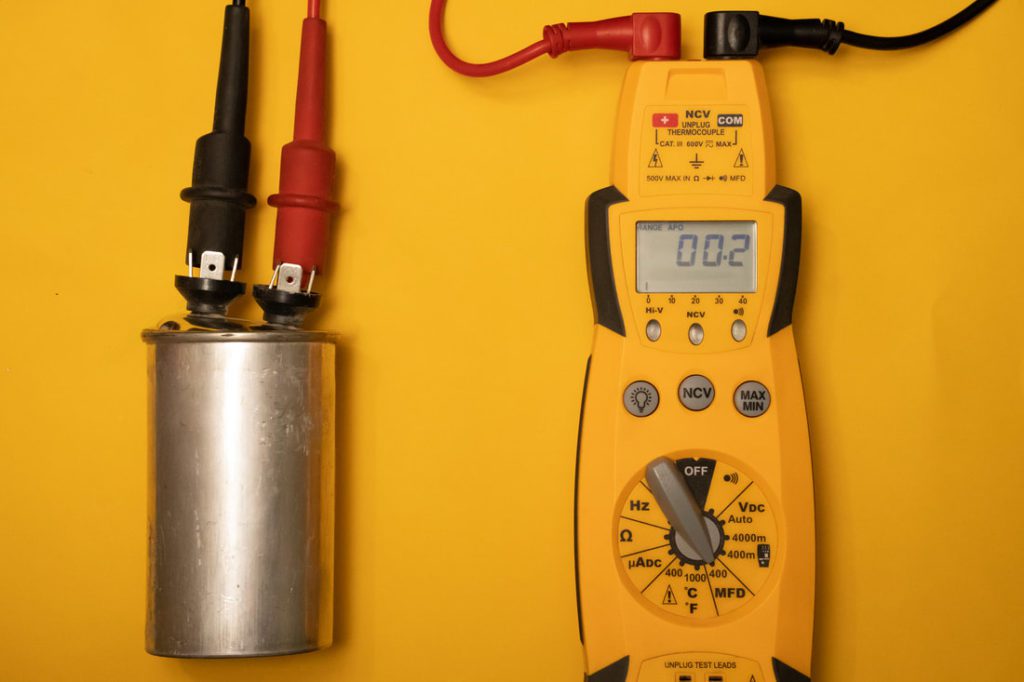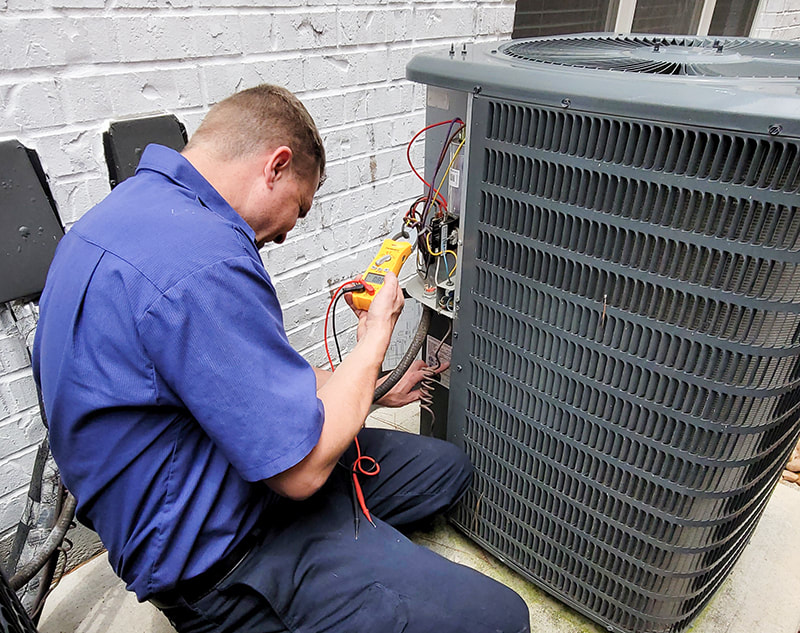One of the most common reasons we get called out in the summer months comes down to a small piece of faulty equipment: the AC capacitor.
What is an AC capacitor and how do you tell if that’s what’s causing Aunt Myrtle to sweat bullets during the baby shower you are hosting on the day your AC goes out?
What is an AC Capacitor?
An AC capacitor can be found on anything that is a motor. It is the equipment that starts and charges the motor. It basically looks like a large, cylindrical battery. Your AC’s capacitor is located outside in your condenser unit. It can be accessed by using a screwdriver to remove the side panel.
To power on your AC, the capacitor will send a surge of power to your AC’s motor, which kicks it on and sends cool air rushing to dear Aunt Myrtle who at this point has sweat so much she regrets wearing a white blouse.

The 4 Signs of a Bad AC Capacitor
1. No cold air coming out of the AC. Aunt Myrtle is starting to get uncomfortable at the party and she asks you to turn the AC down, you do, but no cold air comes out. This is a telltale sign that something is wrong. You can try turning your unit off and back on. If the problem persists, it is probably time to call a professional to come help.
2. You hear a humming noise. Turn your AC system on and have a good listen, is it humming or hesitant to start? This could be a sign of your capacitor failing.
3. Problems turning on. Any of the following can be signs of a capacitor issue:
- Your ac turns off on its own.
- Your ac won’t turn on immediately.
- Your AC won’t turn on at all.
4. Aging HVAC system. Unfortunately, capacitors in general are not made with high quality, so they are often one of the first things to go if your AC unit is several years old. Here in Houston, we see capacitors fail even on relatively new units due to how much we use our AC.


How to Test Your AC Capacitor
Thankfully, there is a way to test the power charge coming from your capacitor, but it does require a tool called a multimeter that can be purchased at your local hardware store. We highly recommend having an HVAC professional come run the test unless you know how to properly remove the capacitor from the circuit and discharge the capacitor before testing. Not doing this properly could result in electrocution. Once you run your test and determine that the capacitor is not producing any charge, you’ll need to replace it with a new one which can be purchased at your local hardware store or an HVAC accessory retailer.





